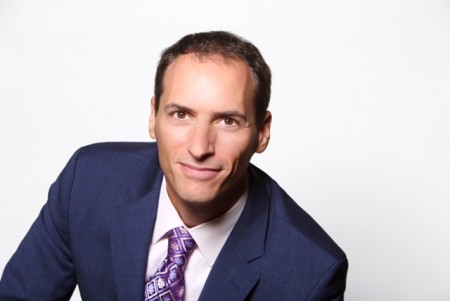Reinventing Professionals: From BigLaw partner to ethical hacker

Ari Kaplan.
Ari Kaplan speaks with Adam Cohen, an attorney and a managing director with the Berkeley Research Group, a global strategic advisory and expert consulting firm.
This Q&A has been condensed.
Ari Kaplan: How would you characterize your evolution from law firm partner to a consultant with technical data security certifications?
Adam Cohen: I was a philosophy major in college and never thought I was interested in technology. But in the late 1990s, as the Internet began to boom, I had the opportunity to work with some of these companies and started to get fascinated by not just technology but by the legal issues that were involved. It was fascinating to apply laws that had been written before this new technology existed and figure out how that worked. Then shortly after 2000, e-discovery started to become a thing. Along with one of my former partners at Weil Gotshal, I wrote a book on electronic discovery that was cited in the Zubulake opinion, and my career kind of took of in that direction. With technology and business these days, everything changes so rapidly that you constantly have to be learning new things.
Ari Kaplan: One of your certifications is actually in hacking. What does an ethical hacker do?
Adam Cohen: Ethical hacking is also known as penetration testing. Basically, an ethical hacker is someone who tests systems, as opposed to an unethical hacker who is doing it for gain, hacktivism, or some other reason. I got this certification because I wanted to have a deep understanding of what was going on so I could advise clients who are doing this as part of their routine, or who should be doing it. There are a lot of certifications in the security space, including the CISSP [Certified Information Systems Security Professionals], which is like the bar exam for security technology professionals. I got it not because I needed to have the credential or because the credential was going to give me some kind of a vocational skill that I needed to implement, but because I was interested in the subject matter.
Ari Kaplan: Given the complexities associated with this area, what are the key questions that you are receiving from your clients today?
Adam Cohen: This is a constantly moving target, but what I am seeing more and more is that all kinds of companies, no matter what they do, are realizing that the value of their business is largely, if not all, in their intellectual property. And I am using that term kind of loosely. I don’t mean copyrights, trademarks, and patents. I mean the know-how and knowledge that others do not have. And where is all that knowledge sitting? Well, it’s all in their computer systems. They are all having this realization that the value is in the information. It’s not just about creating some paper policy or going to a conference, it really requires a holistic enterprise approach that involves people from lots of different groups in the company.
Listen to the complete interview at Reinventing Professionals.
Ari Kaplan regularly interviews leaders in the legal industry and in the broader professional services community to share perspective, highlight transformative change and introduce new technology.



